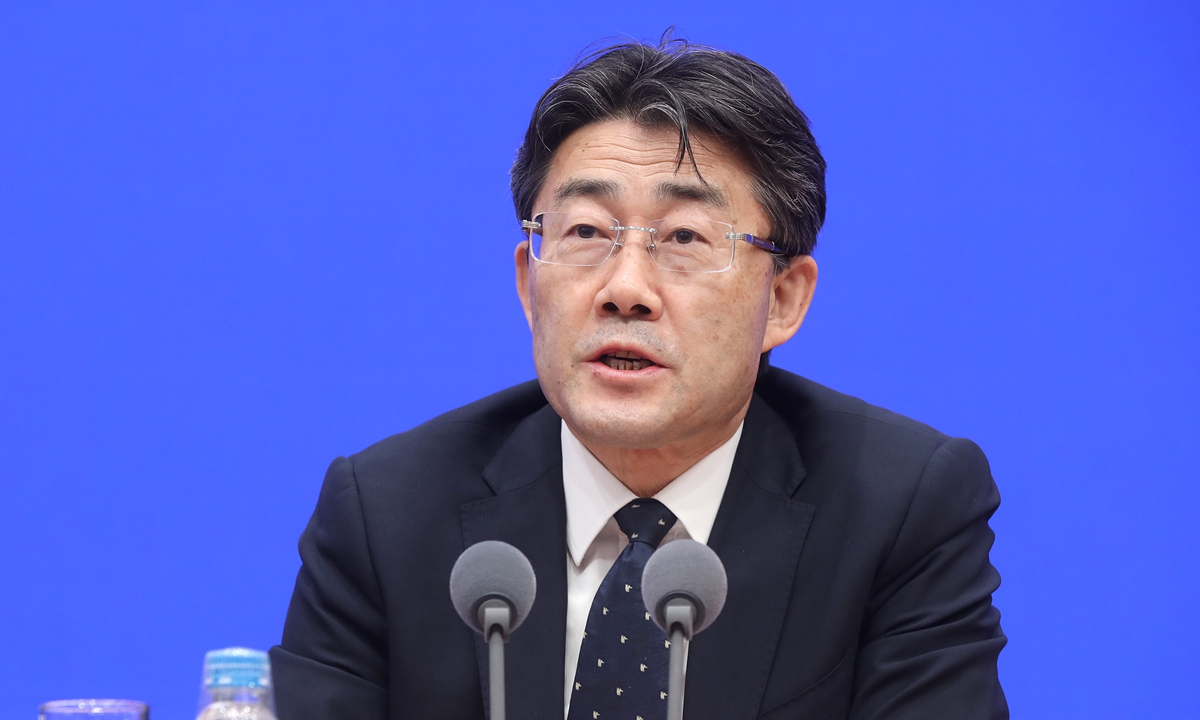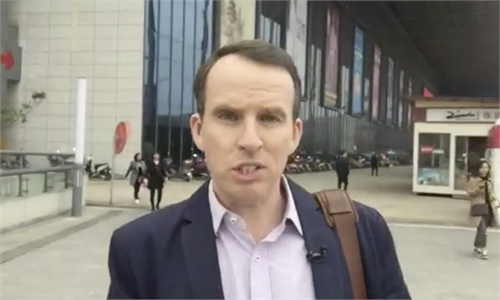Chinese scientist Gao Fu slams BBC as ‘outrageous’ for misquoting him in COVID ‘lab leak’ story: media

Gao Fu, director of the Chinese Center for Disease Control and Prevention Photo: VCG
The BBC said a top Chinese scientist had told the BBC in an interview “don’t rule out lab leak,” but that scientist said he had not participated in any event organized by BBC recently.
The BBC’s quote about the origins of COVID-19 was taken out of context of an online conversation between scientists in 2022 and was distorted to suit their purpose of smearing China, Gao Fu, an academician from the Chinese Academy of Sciences (CAS) and former head of the Chinese Center for Disease Control and Prevention (CDC), said in response to a BBC report citing his comments, according to a report from guancha.cn on Saturday.
The BBC published on May 31, 2023 an eye-catching story headlined “Covid: Top Chinese scientist says don’t rule out lab leak,” which can be easily misunderstood that there appeared new evidence of lab leak.
The BBC report claimed that Gao said during an interview with a BBC Radio 4 podcast that “You can always suspect anything. That's science. Don't rule out anything.”
However, Gao denied that the BBC reporters who wrote the story had interviewed him, and said that he had not participated in any event organized by BBC recently, according to guancha.cn.
According to Gao, the BBC’s so-called quotation were his remarks taken out of context from an online conversation he had with several scientists in late 2022.
“What the most outrageous of all is that, what the BBC reporter quoted me was out of context, and it was opposite to what I said at that time,” Gao said.
According to Gao, what he said exactly at that time was that “from a scientific perspective, we do not rule out any possibilities, but any possibility requires evidence. There is currently no evidence to support the theory of a laboratory leak. Science relies on empirical evidence and questioning, so it is possible to discuss any possibilities within the scientific context.”
“Regardless of whether it is in the Chinese or English context, when a speaker includes ‘but’ in their discourse, it explicitly indicates that the content following ‘but’ is the main point that the speaker wants to emphasize. The actions of the BBC, however, can be seen as blatantly cherry-picking, distorting the facts, and reversing the truth,” Gao said.
Taking the sentence out of context and emphasized the distorted message in the BBC headline once again shows BBC’s bias and slander toward China, according to guancha.cn.
Gao thinks that this report is just another low-level example of the BBC’s “underworld filter” style of reporting on China, which has been ridiculed by numerous Chinese netizens.
One of the reporters behind the article is BBC's former Beijing correspondent John Sudworth, who became infamous in China for many biased stories distorting China’s Xinjiang policies and COVID-19 responses.
Sudworth left the Chinese mainland in March of 2021 after Xinjiang individuals said they plan to sue BBC for fake news, and he has since relocated to Taiwan island.
Chinese Foreign Ministry spokesperson Hua Chunying said Sudworth did not leave through the proper procedures for resident foreign correspondents.
Global Times

